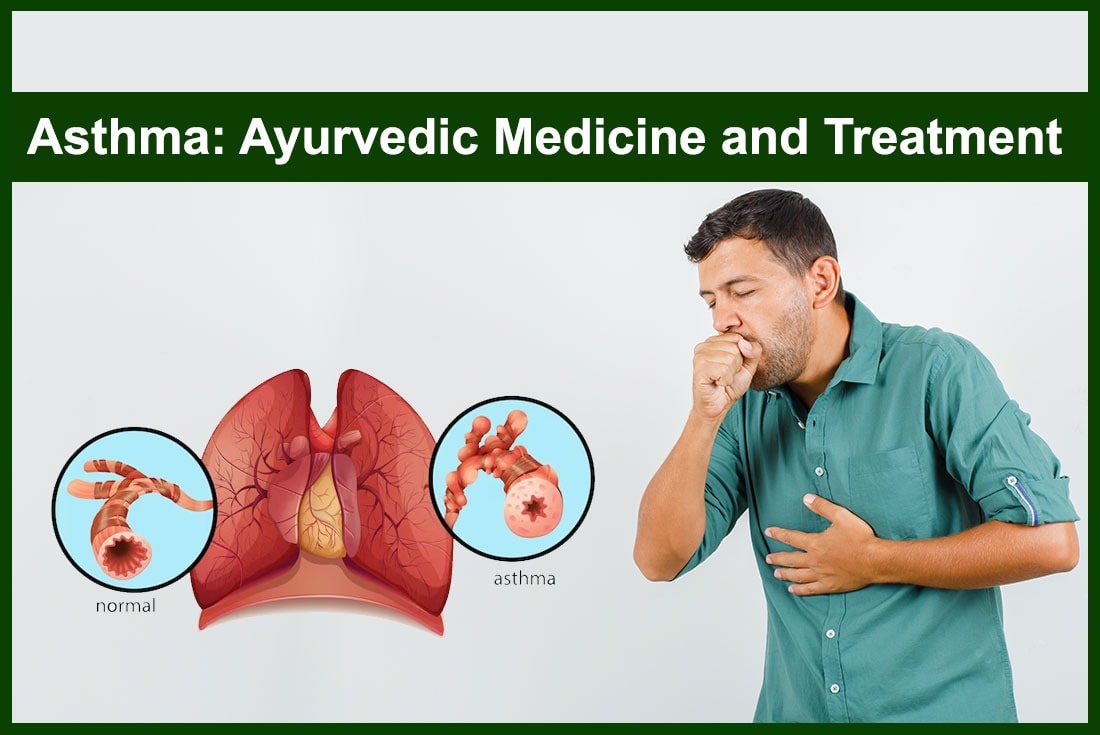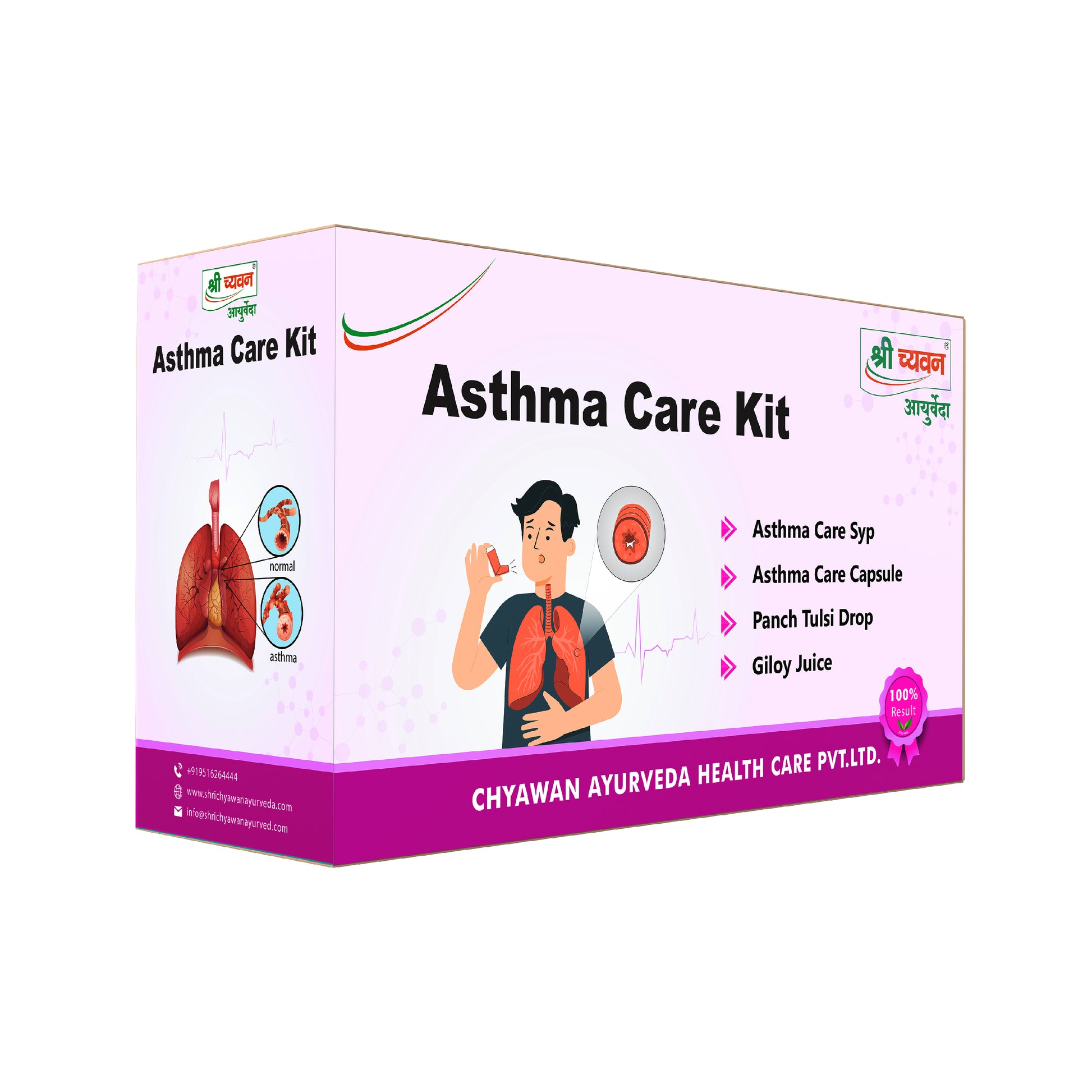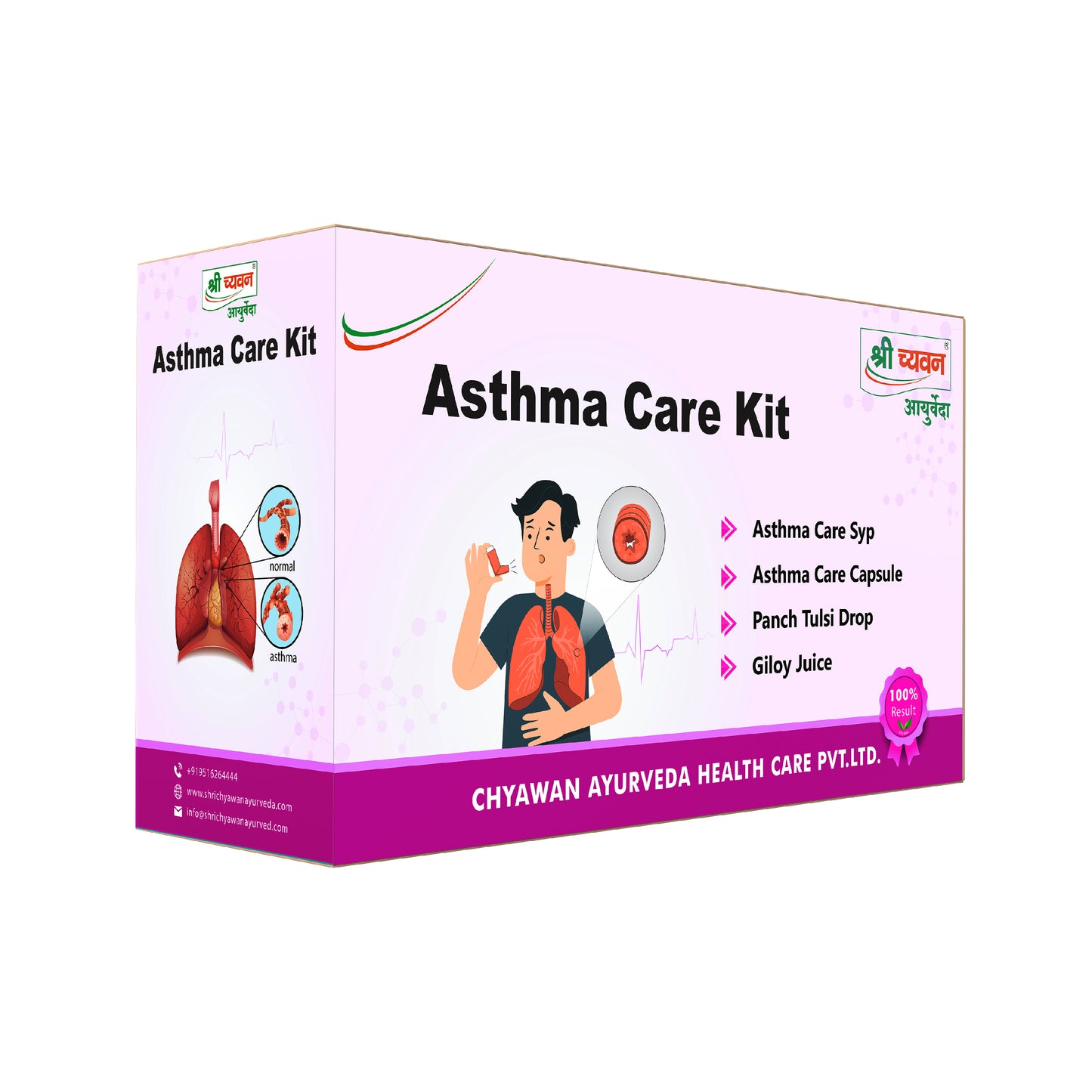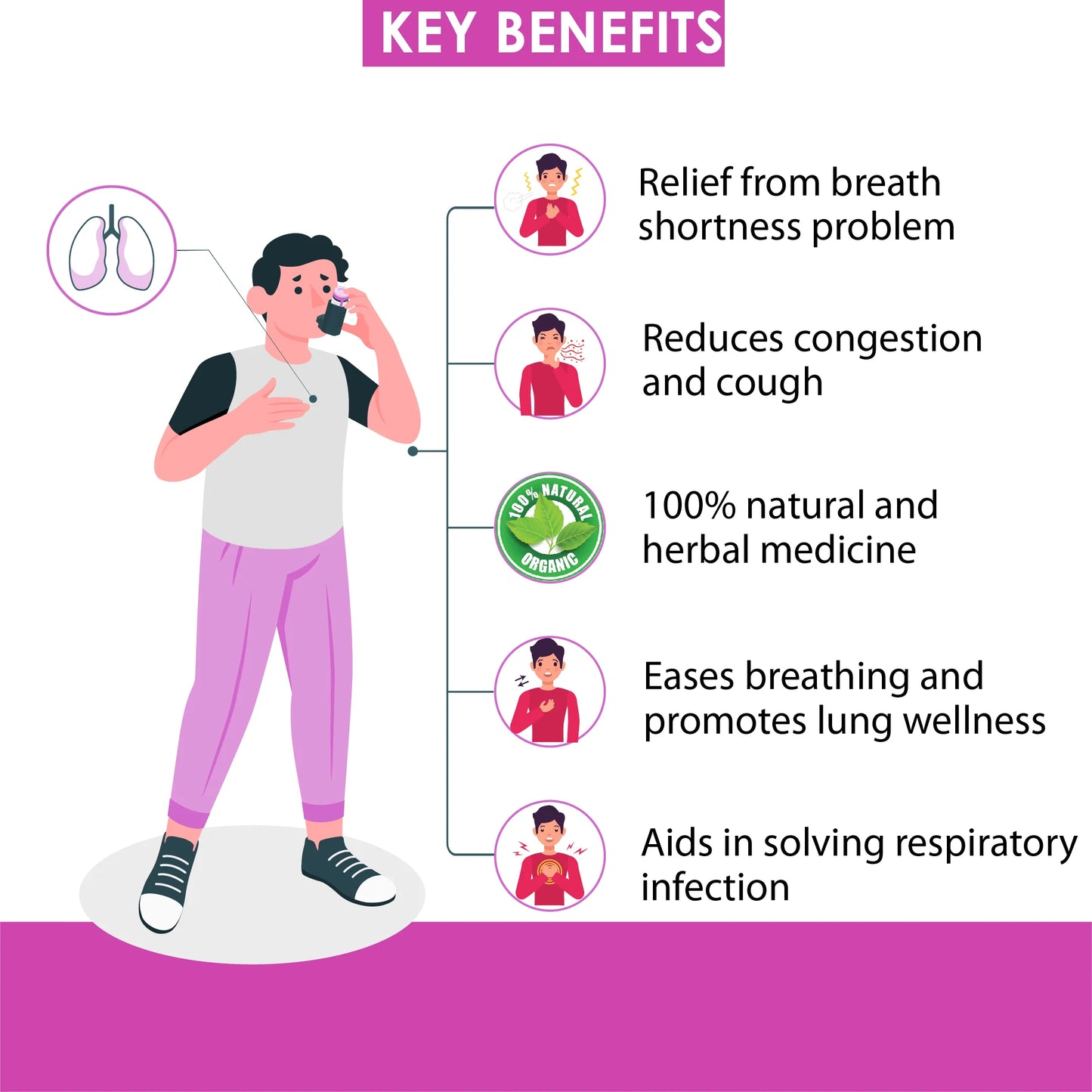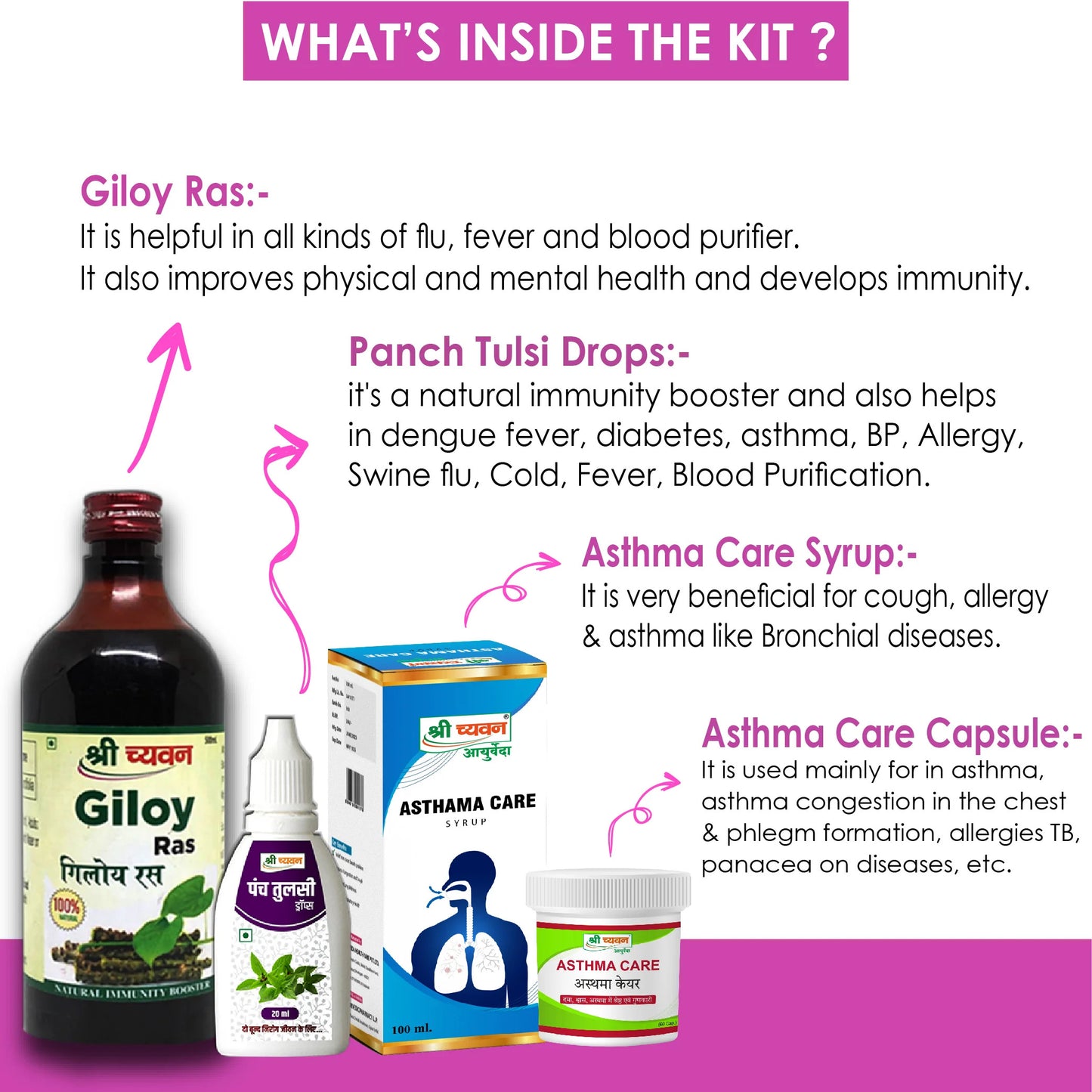The winter season often brings a drop in air quality, triggering concerns for individuals susceptible to respiratory conditions like asthma. As the Air Quality Index (AQI) rises, so does the risk for asthma exacerbations.
What is Asthma?
Asthma is a chronic respiratory condition characterized by inflammation and narrowing of the airways, leading to breathing difficulties, coughing, wheezing, and chest tightness. When exposed to triggers like allergens, pollution, or cold air, individuals with asthma may experience worsening symptoms. During winter, AQI often rises due to various factors like increased indoor pollution, higher levels of particulate matter, vehicular emissions, and stagnant air. This rise in pollution can aggravate asthma symptoms and trigger attacks. Cold, dry air can also irritate airways, making breathing more challenging for asthma sufferers.
Relationship between Asthma & Dosha’s: In Ayurveda, the traditional medicine system of India, asthma is often associated with an imbalance in the Kapha and Vata doshas. Here's a brief explanation of this relationship:
-
Kapha Dosha: Kapha is characterized by qualities of heaviness, coldness, and excess mucus production. When Kapha is imbalanced, it can lead to increased mucus in the respiratory system, which might manifest as congestion and difficulty breathing, contributing to asthma symptoms.
- Vata Dosha: Vata embodies the qualities of dryness, mobility, and air. When Vata is disturbed, it can cause irregular breathing patterns, constriction in the airways, and dryness in the respiratory system, which might exacerbate asthma symptoms like shortness of breath and wheezing.
How winter season triggers Asthma & Respiratory issues?
Winter can be a challenging season for individuals with asthma as the cold, dry air can exacerbate respiratory issues. The cold air during winter tends to be drier, leading to irritation and inflammation of the airways in those with asthma. Additionally, spending more time indoors where allergens like dust mites, pet dander can accumulate due to closed windows and heating systems further triggers asthma symptoms.
Cold weather also encourages people to use indoor heating systems, which can dry out the air, causing further irritation to the airways. These factors collectively contribute to increased asthma attacks, shortness of breath, wheezing, and coughing during the winter months, making respiratory issues more prevalent and challenging to manage.
Furthermore, winter often coincides with an increase in respiratory infections such as the flu and common cold. For individuals with asthma, these respiratory infections can pose a greater risk as they can exacerbate asthma symptoms. The combination of cold, dry air, indoor allergens and an increased prevalence of respiratory infections creates a perfect storm for aggravating asthma, heightening the likelihood of more frequent and severe asthma attacks during the winter season.
Managing asthma effectively during this time often involves taking preventive measures such as using inhalers as prescribed, staying indoors during peak cold periods, keeping indoor air humidified, and practicing good hand hygiene to reduce the risk of infections that could worsen asthma symptoms.
Ayurvedic Medicine for Asthma:
In asthma, breathing issues arise primarily due to the inflammation and narrowing of the airways, resulting in difficulty breathing. During an asthma attack or flare-up, the muscles around the airways tighten (bronchoconstriction) and the airway linings become swollen, leading to increased mucus production. These combined factors restrict airflow, causing wheezing, coughing, shortness of breath and a feeling of tightness in the chest.
Asthma Care Kit: Asthma is a condition in which a person's airways become inflamed, narrow and swell and produce extra mucus, which makes it difficult to breathe. Asthma can be minor or it can interfere with daily activities and requires to be treated with ayurvedic medicine for Asthma. In some cases, it may lead to a life-threatening attack. Our ayurveda experts have formulated a best ayurvedic medicine for asthma - Asthma Care Kit.
Asthma Care Kit includes:
- Asthma Care Capsule: It is used mainly in asthma, asthma congestion in the chest and phlegm formation, allergies TB, panacea on diseases, etc.
Ingredients: It consists of Shudh vatsnabh, Talispatra, Vanshlochan, Sunthi, Kajjli.
How to use: Consume 1 capsule, three times a day.
- Asthma Care Syrup: It is very beneficial in cough, allergy and asthma like Bronchial diseases.
Ingredients: It consists of Amba Haldi, Black Pepper, Sunth, Choti Pipal, Adusi, Choti Kateri, Kulinjan.
How to use: One tea spoon full, four times a day with warm water.
- Giloy Ras: It is helpful in all kinds of flu, fever and blood purifier. It also improves physical, mental health and develops immunity.
Ingredients: It mainly consists of Giloy Ras.
How to use: For children: Half to 1 teaspoon (5 to 10ml)
For adult: 1 to 2 teaspoon (10 to 20ml), thrice a day
- Panch Tulsi Drops: It helps in dengue fever, diabetes, asthma, BP, Allergy, Swine flu, Cold, Fever, and Blood Purification.
Ingredients: It consists of Tulsi leaves extract/juice.
How to use: Consume 1-2 drops in a cup of tea/coffee/ warm water, twice a day.
Other remedies to treat Asthma:
- Dietary Changes: Adjusting the diet to pacify Kapha and Vata imbalances, this may involve avoiding heavy, cold, and mucus-producing foods, while favouring warm, light, and easily digestible foods.
-
Herbal Remedies: Using specific herbs and herbal formulations to support respiratory health, reduce inflammation, and balance the doshas. Examples include licorice, turmeric and ginger.
-
Lifestyle Modifications: Incorporating practices such as yoga, pranayama (breathing exercises), and regular exercise to improve lung function and overall well-being.
- Stress Management: Stress can exacerbate asthma symptoms. Techniques like meditation and mindfulness can help manage stress levels, thereby potentially reducing asthma flare-ups.
Ayurvedic treatment for asthma, offers a holistic path toward alleviating symptoms and promoting overall well-being. By emphasizing personalized dietary adjustments, herbal remedies, lifestyle modifications, and mindful practices, Ayurveda aims not just to manage asthma but to address its root causes. Integrating these time-tested principles into one's life may not only provide relief from asthma symptoms but also foster a deeper connection with one's body and a more balanced, harmonious way of living.

